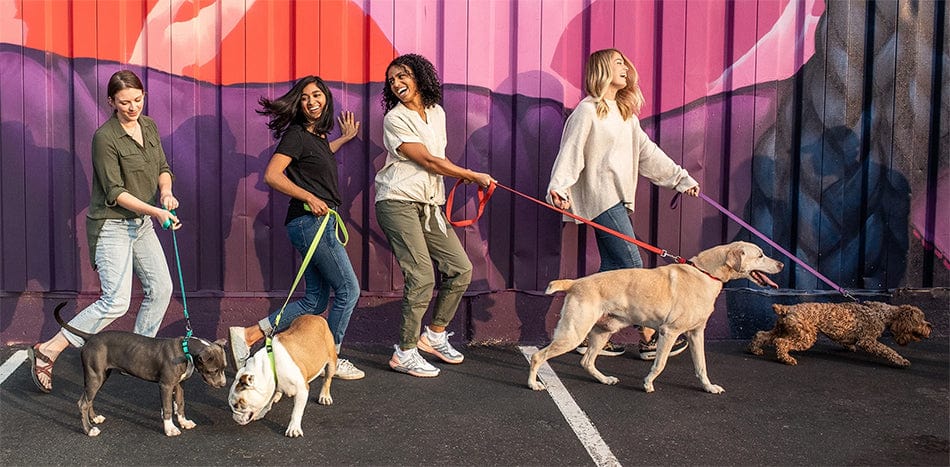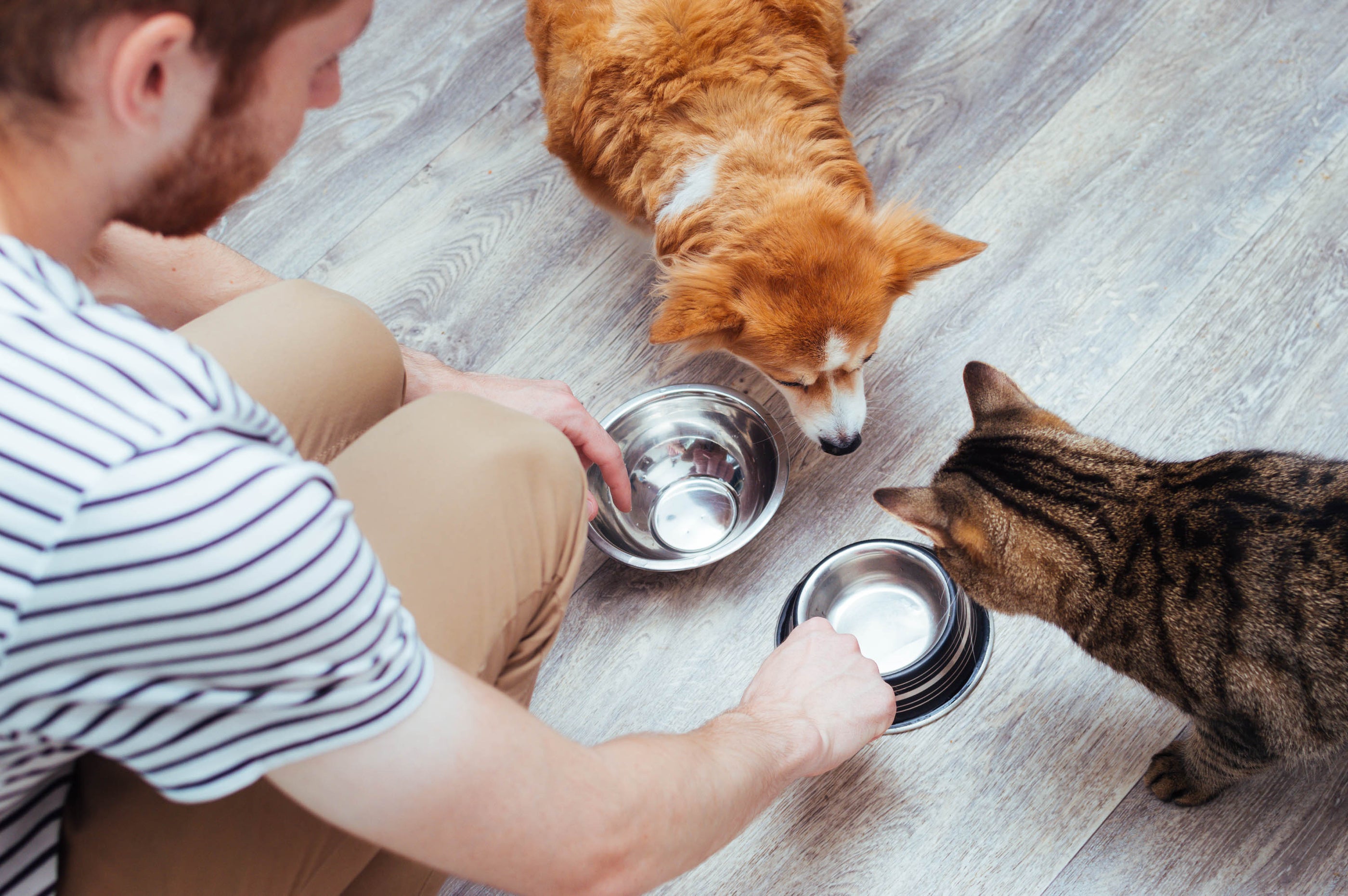Your cart is empty. Let's fix that!


Feeding multiple pets in the same household can be complicated, and it only gets trickier if you have dogs and cats who want to sample each other’s chow! We’ve got advice to make mealtime stress-free.
Having multiple pets can add a whole lot of joy to your life, but there are some problems that can come with having a big pack! One common issue that pet owners face is their pets stealing each other’s food. While that might seem harmless at first, there are a few reasons why it’s a good idea to curb that behavior.
It’s important to feed each of your pets a balanced diet, and part of that is giving each of them a specific amount of food that provides all the nutrition they need. If one of your pets is noshing on another’s food, they’re getting more calories than they need while their companion loses out on essential nutrients. This is especially significant if your pets have special foods for any medical concerns or specific nutritional needs! Those formulas should only go to the pets who need them.
Sampling each other’s food is especially problematic in households with both dogs and cats. While sharing toys can be fun, sharing their food is not. Dogs and cats have very different nutritional needs, and chowing down on each other’s pet food can lead to health problems.
As obligate carnivores, cats need food that’s high in protein and fats. Those formulas can be extremely fattening (and tempting) for dogs, leading to excess weight and all the related health concerns that can cause. In severe cases, high-fat meals can even lead to pancreatitis. On the other hand, dog food formulas are higher in carbohydrates, which provide little benefit to cats and leave them deprived of essential nutrients like taurine.
While there are ingredients that you can safely feed to all your pets, there are no complete pet foods that are good for both dogs and cats. Their nutritional needs are too different to be compatible, so it’s important to keep their diets separate!
Finally, food stealing can lead to conflicts between your pets. Some pets are particularly prone to resource guarding and can respond aggressively when someone steals something they think is theirs—like their dinner.
It doesn’t help that dogs and cats aren’t always great at reading each other’s body language. Your sweet-but-doofy dog might not pick up on the warning signs that your territorial cat doesn’t want to share their precious wet food until it’s too late…and you end up with a scratched snout and two upset pets.
There are many good reasons to keep your pets’ food carefully separate—but that can be easier said than done.
For some affable pets, stopping them from sampling their housemate’s food can be as simple as a stern “no” and a redirection to their own food bowl. For most pets, however, things aren’t so simple. Food-motivated pets who are always scrounging for an extra snack and adventurous eaters who have gotten a taste for another species’s food are particularly prone to food thieving!
Every pet and every household is unique, so you’ll need a unique solution to solve your food robbery problems. There are many expert-recommended techniques to help, and you can experiment to find which solutions work best for your family!
With a few adjustments to your routine, you can make feeding your dogs and cats a fun part of everyone’s day instead of a headache. Mealtimes should be about the love of good food, not trying to pry kibble out of anyone’s mouth, after all. Here’s to joyful breakfasts and dinners, pet people!